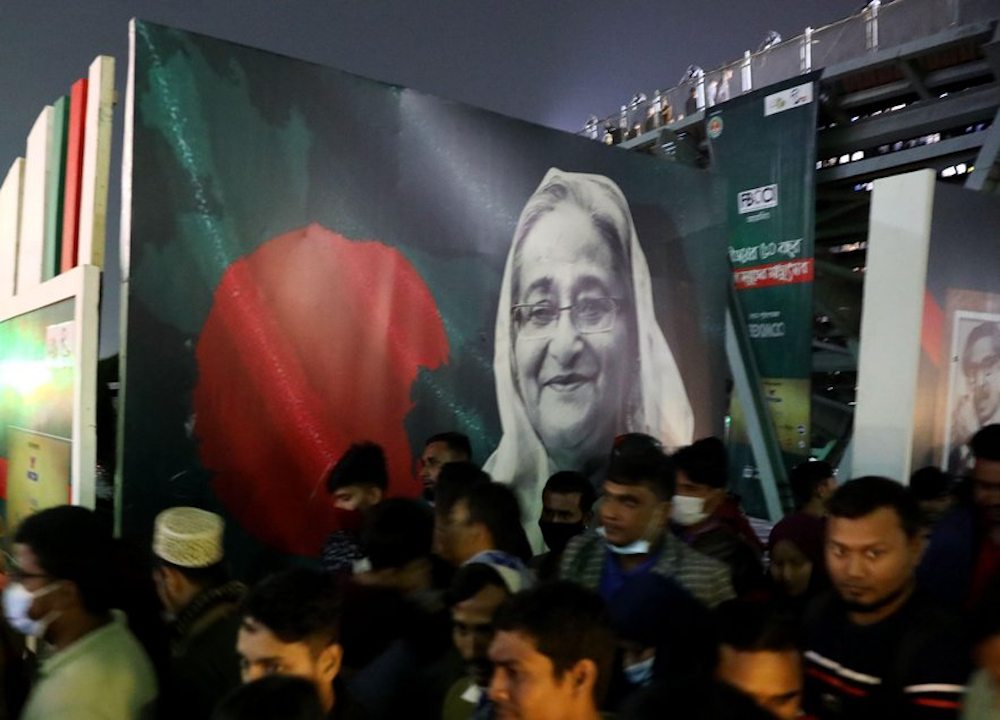Bangladesh’s public relations problem
The Awami League government should be concerned about The Economist’s description of Sheikh Hasina as a prime minister seeking to make the country a “one-party state”.

At the end of a recent webinar hosted by Harvard University’s Asia Center on Bangladesh’s strategic relationship in the world, Michael Kugelman, the Director of South Asia Institute at The Wilson Center, talked about the country’s reputation around the world.
“Bangladesh cares a whole lot about its image. It spends a whole lot of money on lobbying, especially in Washington.”
“But it is one of those cases where it’s hard to change the perceptions unless the policies change,” he added. “Those who are most concerned, are concerned about democratic back-sliding, and I think Dhaka is not about to take that step of addressing the policies that are leading to these negative perceptions.
“There are sometimes complaints about foreign media coverage of Bangladesh, that it is not complete enough, it is too reductive. But at the end of the day it comes down to the policy issues that not only impact public perceptions of Bangladesh from the outside, but also impact the thinking of many key governments in the West, particularly the US and the EU.”
Whether due to the “lobbying” or simply because there is a positive story to tell about Bangladesh, the current government does however continue to get some positive press, shorn of any concerns about democracy and governance.
A recent Washington Post article about the prime minister Sheikh Hasina, which represented her as an amiable grandmother figure must have gone down very well in Ganabhaban. The Commonwealth has also been very kind to the prime minister, referring to her as “phenomenal” through its myopic focus on her gender. And of course, as Netra News has written about, the government has a good story to tell about social and economic progress, so the county is often positively portrayed by writers and publications willing to focus solely on the economy.
However, two recent articles in the influential Economist magazine illustrate how it is not easy for Bangladesh’s Awami League (AL) government to get good public relations, with elections at the end of the year and an inevitable increased focus on governance. The Economist wrote:
“Sheikh Mujibur tried to make Bangladesh a one-party state before, in 1975, he and much of his family were assassinated. His daughter has all but completed the task.”
Ouch! Sheikh Hasina is described as “the increasingly autocratic prime minister, [who ] has done what she can to destroy the opposition.” And there are some more choice paragraphs providing greater colour to this claim. This is one:
“Sheikh Hasina claims she is cracking down on corruption. In truth, the state is rotting from the head. She has constructed a personality cult around her late father, Sheikh Mujibur Rahman, the country’s independence hero — and by extension around herself. Her patronage system and demand for loyalty underpin her power, while destroying independent institutions. The police and the courts are in the service of the AL and its cronies. The press is not free. Dissidents are in jail; some have been murdered. Even on punchy university campuses the AL rules by fear, via its swaggering, sometimes violent student wing.”
And another:
“Almost every area of the economy is touched by [Sheikh Hasina’s] bid to turn Bangladesh into the one-party state envisaged by her assassinated father, Sheikh Mujibur Rahman, the country’s first president. Access to jobs, permits and government contracts runs through the ruling Awami League. Many domestic banks are thinly disguised shell operations, designed to funnel loans to the well-connected. … Bangladesh’s rich and corrupt have made it a money-laundering world leader.”
And then this one:
“A powerful cabal of politicians, bureaucrats and the security services extorts fees that are the down payment for accomplishing anything—from getting off an unfair traffic fine, to winning a government contract, to joining the coastguard, to applying to be a primary-school teacher. Far from being valued as they dearly deserve to be, those overseas-remittances workers are routinely shaken down at immigration.”
In 2009, when the Awami League came to power, few could have imagined that 14 years later, these kinds of descriptions would be written about Sheikh Hasina. But at so many junctures the party and its leader chose power over democracy and good governance.
In public relations terms, talk of the one-party state is not good for the Bangladesh government. It is only recently that outside commentators have started talking about Sheikh Hasina as an “authoritarian” leader — a term, for example, also used by the Economist — but to refer to her as a leader of a “one-party state” takes description about her and her government to a whole new negative level.
The concern for the Bangladesh government is that other journalists outside the country may begin to follow the Economist. And while this will have almost no direct impact on Bangladesh politics, it may well — as Kugelman suggested in the webinar — impact upon the tone that Western democratic politicians take in dealing with the country as the fear of a rigged election looms.
/DB